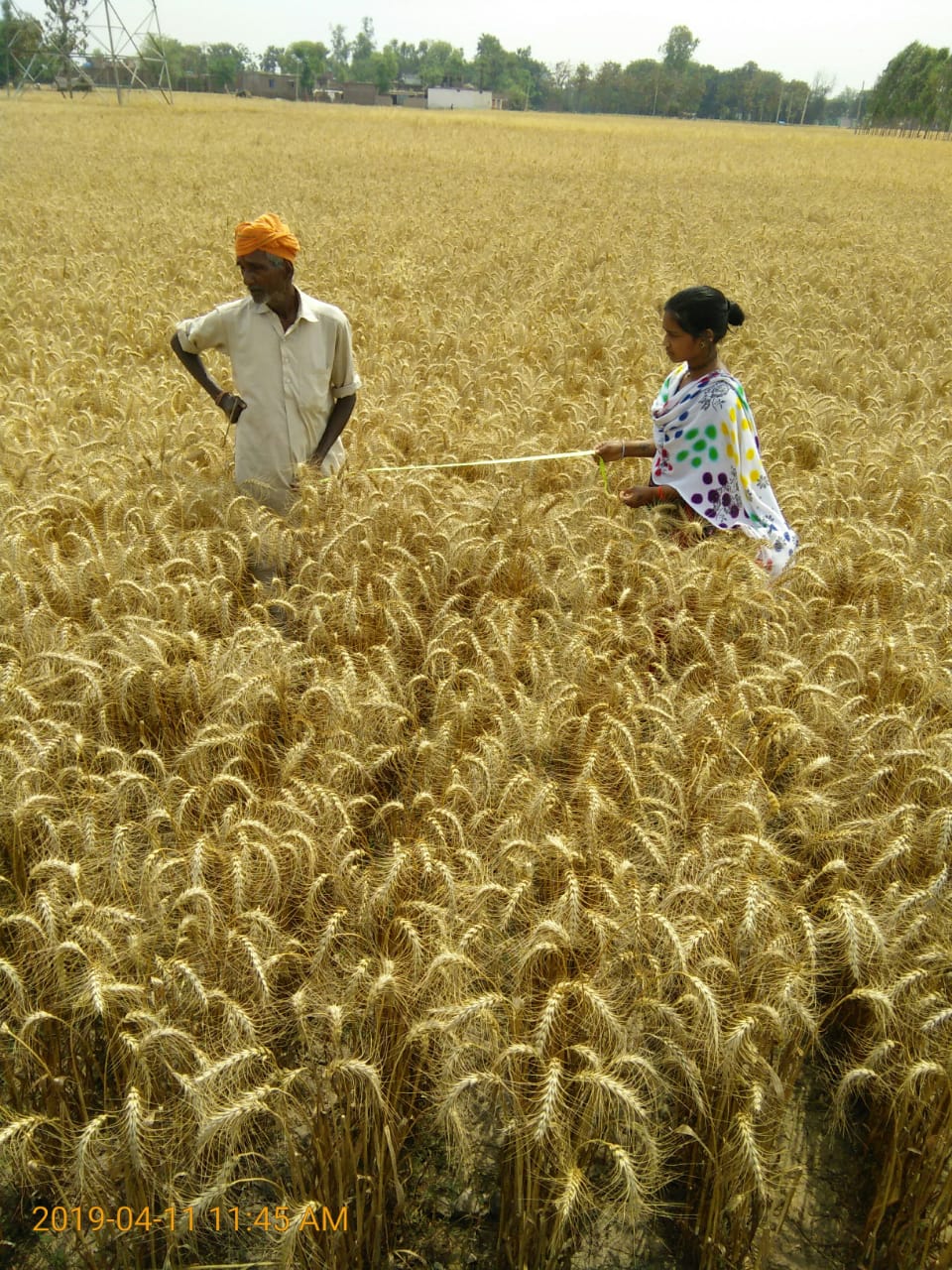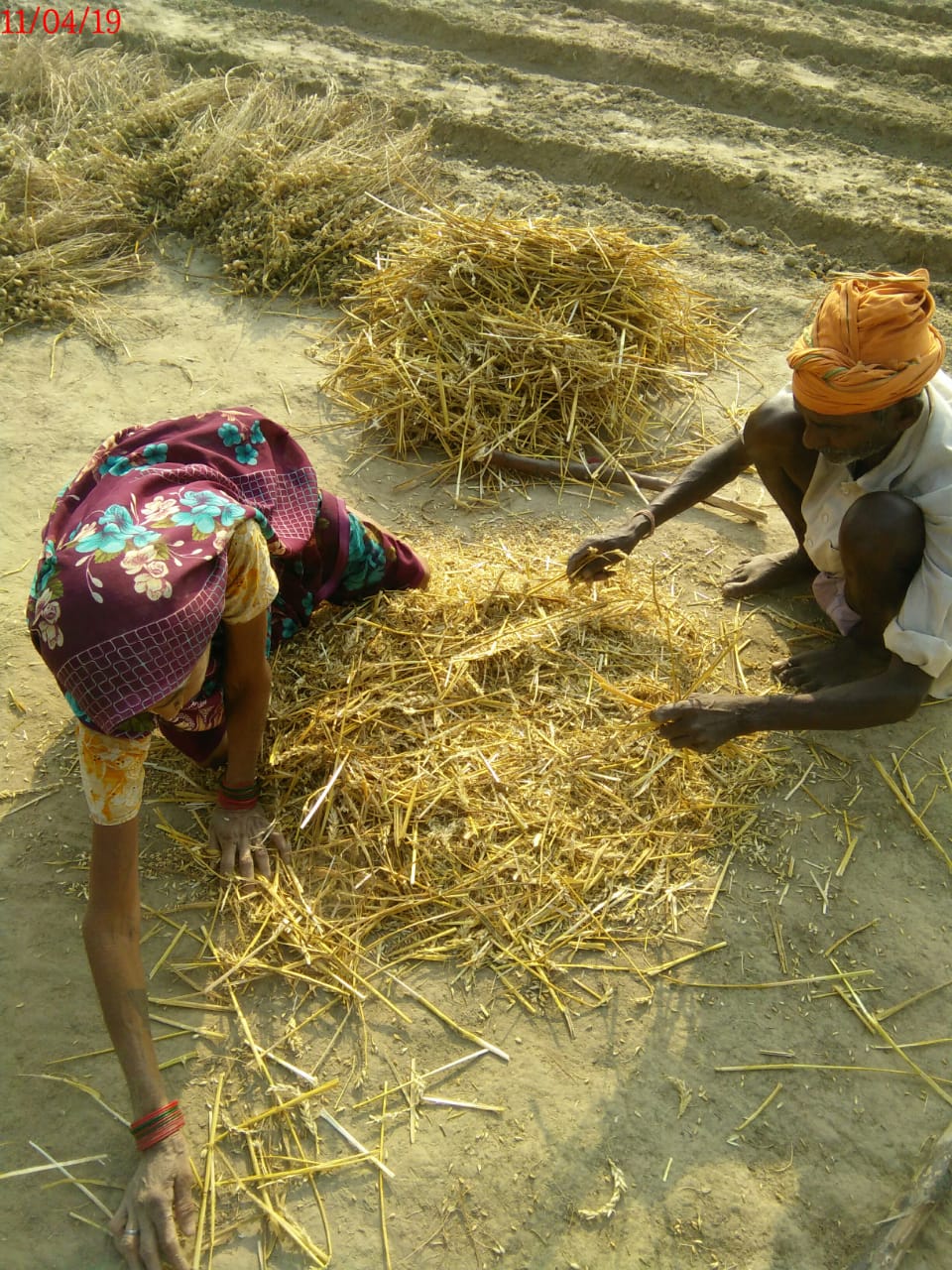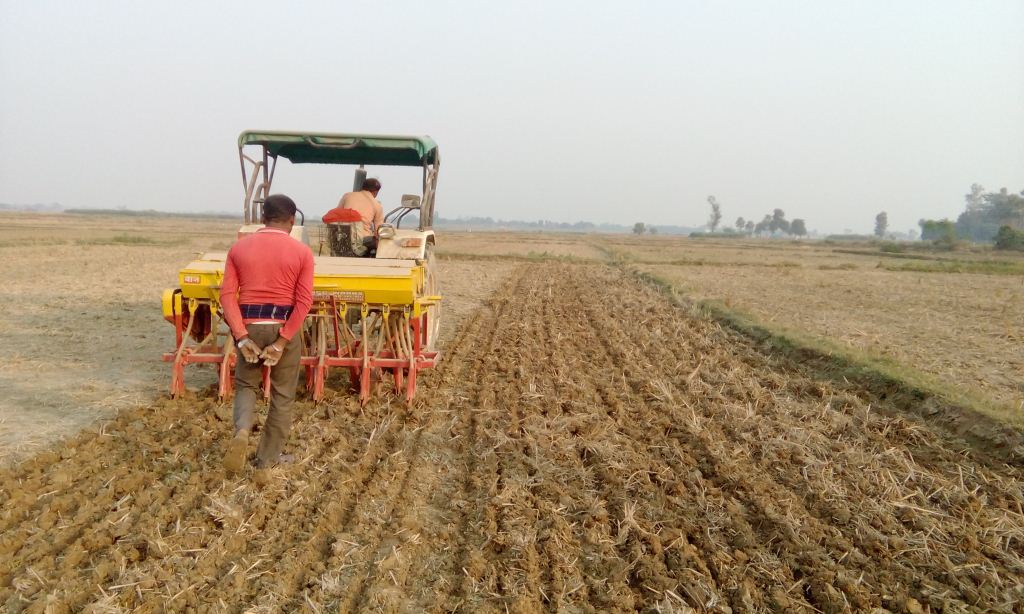Transforming Agriculture: Jamauti Devi’s Success with Zero Tillage Farming
Introduction:
Jamauti Devi, a 50-year-old farmer from Mohania village in Tatantwa Gram Panchayat, Siddharthnagar district, has redefined agricultural success through Zero Tillage Farming. Despite limited resources and reliance on traditional farming methods, her family faced financial instability. With support from Swabhiman Samiti, Jamauti adopted innovative practices that transformed her life and inspired others in her community.
The Challenge:
- Low Income:
- Traditional wheat farming brought minimal returns, with a net income of ₹12,000 per acre after expenses.
- High Costs:
- Conventional farming methods were labor-intensive and expensive, reducing profitability.
- Limited Knowledge:
- Jamauti lacked access to advanced farming techniques that could enhance productivity and efficiency.
- Financial Struggles:
- Farming as the sole income source left her family struggling to meet basic expenses.
The Solution:
In 2015, Jamauti joined the Radhika Devi Women Farmers’ Group under the Sujalam Sufalam Project by Swabhiman Samiti. Field supervisors introduced her to Zero Tillage Farming, an innovative method with several benefits:
- No Plowing Required:
- Seeds are sown directly using a Zero Tillage Machine, reducing labor and time.
- Cost Savings:
- Eliminated expenses on plowing and minimized fuel and labor costs.
- Increased Productivity:
- Enhanced seed germination and better resource utilization.
- Sustainability:
- Preserved soil health and moisture, ensuring long-term agricultural viability.
Encouraged by the program, Jamauti decided to implement this method on her 1.2-acre wheat farm.
The Transformation:
The transition to Zero Tillage Farming yielded impressive results:
- Economic Gains:
- Cost of Cultivation: ₹9,500.
- Yield: 30 quintals (3,000 kg) of wheat.
- Gross Income: ₹39,000 (at ₹13 per kg).
- Net Profit: ₹29,500, a remarkable increase of ₹17,500 compared to traditional methods.
- Improved Infrastructure:
- With increased earnings, Jamauti purchased a pumping set and financed a borewell, ensuring sustainable irrigation for her crops.
- Community Leadership:
- Inspired by her success, Jamauti began sharing her experiences, encouraging other farmers in her village to adopt Zero Tillage Farming.
- Environmental Sustainability:
- Improved soil structure, reduced water usage, and minimized labor made her farming practices more sustainable and efficient.


Results and Achievements:
- Financial Stability:
- Jamauti’s increased income enabled her to manage household expenses comfortably and invest in farm improvements.
- Knowledge Sharing:
- Her proactive efforts have influenced neighboring farmers to adopt Zero Tillage Farming, fostering a community-wide shift to innovative methods.
- Long-Term Sustainability:
- Adoption of eco-friendly practices has contributed to preserving the environment and ensuring sustainable farming for future generations.
Conclusion:
Jamauti Devi’s story is a testament to the transformative power of adopting innovative agricultural practices like Zero Tillage Farming. With support from Swabhiman Samiti, she overcame financial challenges, achieved economic stability, and inspired her community to embrace change. Her journey highlights the importance of training, knowledge-sharing, and community support in empowering rural farmers and promoting sustainable agriculture.
Acknowledgment:
Jamauti Devi credits her success to Swabhiman Samiti for introducing her to Zero Tillage Farming and providing continuous guidance. Their efforts in empowering farmers with modern techniques are creating lasting impacts in rural Siddharthnagar.






